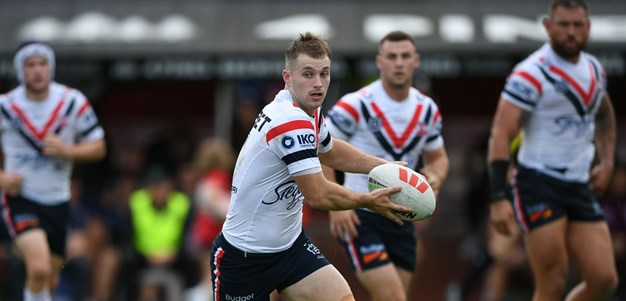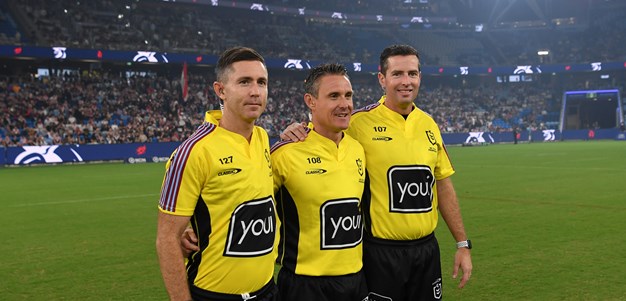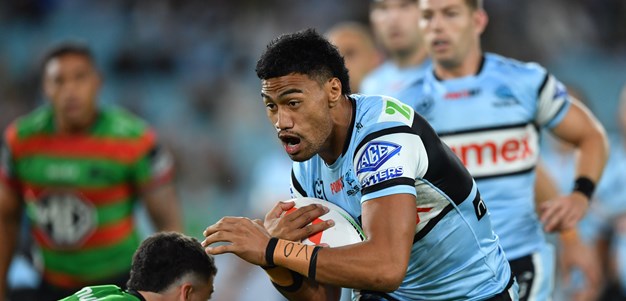Exhausted, out of breath, and with his mind somewhere between the clouds and nirvana, Timana Tahu reached the highest point in Red Rocks, Denver – some 1,900m above sea level – and looked back on the speck that rugby league was on the world.
In reality, not many people in the northern hemisphere might have ever heard of 40/20s, scrums, the West Coast Pirates, or hookers that provide good service out of dummy-half.
But here Tahu was, just a few weeks away from a Newcastle homecoming that would be his final shot at redemption, shredding away the excess kilos with guys that had names such as ‘Rampage’ in places with names like MusclePharm.
“I tore my pec playing for Penrith and just being overweight, I had so much time off and I didn’t have a club at the time,” recalls Tahu, who was invited over by New Zealand-born UFC fighter James Te-Huna.
“Wayne [Bennett] asked me if I wanted to come back and my first thought was that I didn’t want to come back to the Knights overweight. I wanted to be enthusiastic in my training and start day one in good condition.
“It was a good thing to get away and go overseas and go somewhere where no one knows anything about football. My aim wasn’t to go there and just be a spectator and live it up like a holiday. It was a once in a lifetime experience to train with UFC fighters and see how they click.”
Not unlike Reni Maitua and his Muay Thai training in Phuket in the 2011 pre-season, the international boot camp is becoming a bit of a trend for rugby league’s stars.
“It was also a good way to get my mind off footy,” Tahu says. “For me, I love training with different athletes. For fighters, they’ve got to get themselves up every morning, whereas for me, it’s a team thing. I can’t let my team-mates down. They’re totally different worlds in that sense.”
Ironic then, that Tahu reckons athletes like the polarised Sonny Bill Williams have paved the way for today’s generation to look beyond the fishbowl nature of rugby league.
“I applaud Sonny Bill with what he does. He’s living the dream,” Tahu says. “A lot of people criticise him for what he’s doing, but everyone dreams or would love to do what he does. He’s a dual international, he’s won a World Cup, won grand finals, and he’s starting to become a professional boxer.
“That’s something I would love to do too, have an MMA [Mixed Martial Arts] fight, but it goes down to timing and asking the club.
“I wanted to challenge myself, I went over to rugby and a lot of people doubted me about rugby and not making it. I got to proudly pull on a Wallabies jersey.
“When I came back [to league] a lot of people were doubting me, not being good enough, or being too old. First year back I played State of Origin and played for Country. So for Sonny Bill, he’ll come back and probably play for the Kiwis again. That’s the type of athlete he is.”
In the end, though, rugby league isn’t the type of game you can just walk away from. Whether you’ve been in racial dramas or immersed in the ecstasy of winning a rugby union World Cup, Tahu says the 13-man game is at the heart of every player.
“I was a little bit filthy I didn’t get as much support as I wanted [when I walked out of Origin camp in 2010],” he says.
“There are blokes that get brought up on alcohol charges and have some domestic cases, but still get to play in representative sides and are heralded as good players…
“It would’ve been easy for me to leave the game and it would’ve been easy for people to say that I did the wrong thing and that’s what happens. ‘Good on him, he’s gone’, and just fade away.
“But for me, it wasn’t going to happen. When I tore my pec and went through that racial stuff, it was about proving a point and staying strong.
“I’ve done my full circle. And I get to play with guys like Danny [Buderus] and Willie Mason – we played our junior footy together. And Wayne gave me a chance to come back.”



